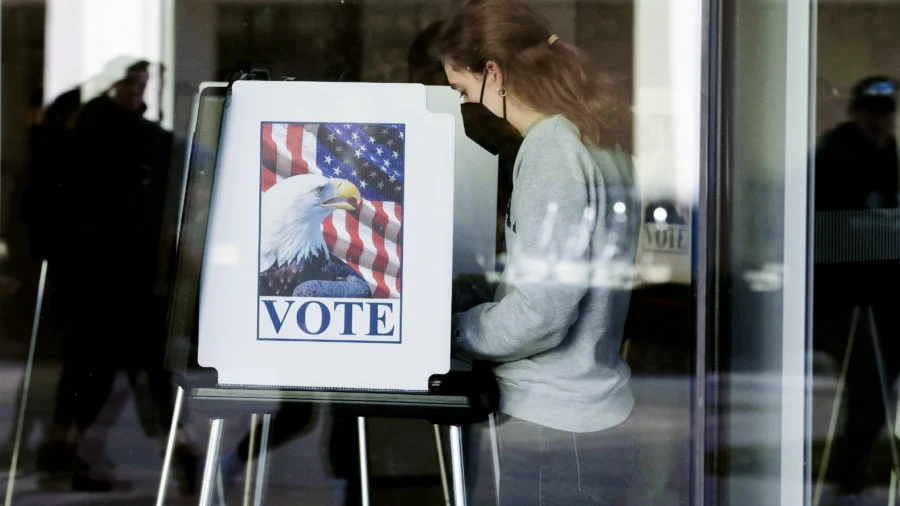The Office of the Director of National Intelligence (ODNI) said it hasn’t observed any countries attempting to interfere with the 2024 elections in November.
“To date, the (Intelligence Community) has not observed any foreign actor seeking to interfere in the conduct of the 2024 elections,” the ODNI said in a report, released Sept. 6, titled, “60 Days to Go Until Election 2024.”
But the ODNI is continuing to “to monitor foreign actors’ influence efforts, seeking to uncover any activities that could enable election interference, especially cyber or physical disruptions of election infrastructure.”
Although the report said that Russia currently presents “the most active foreign influence threat” to the 2024 contest, U.S. intelligence officials have found no evidence that it has tried to meddle in the election.
It pointed to the Department of Justice’s (DOJ) indictment against two employees of RT, also known as Russia Today, a Moscow-backed media organization. They are accused of siphoning about $10 million to fund and direct an American media company to promote content that favors Russia’s interests, the DOJ said.
The DOJ, meanwhile, has claimed that the media company used the money to hire influencers including Tim Pool, Dave Rubin, and Benny Johnson, among others. The DOJ also seized 32 internet domains allegedly used by the Russian government.
“Both of the schemes I have just discussed make clear the ends to which the Russian government—including at its highest levels—is willing to go to undermine our democratic process” and that the recent court filings indicate that Russia is promoting “state-sponsored narratives as part of a program to influence the 2024 U.S. presidential election,” Attorney General Merrick Garland said at an event last week.
In social media statements last week, he wrote that, “should these allegations prove true, I as well as the other personalities and commentators were deceived and are victims.” Garland also said that “never at any point did anyone other than I have full editorial control of the show and the contents of the show are often apolitical.”
Johnson similarly wrote on social media platform X that he was “disturbed by the allegations” in the indictment, adding that he “and other influencers were victims in this alleged scheme.”
Rubin wrote on X, in part: “These allegations clearly show that I and other commentators were the victims of this scheme. I knew absolutely nothing about any of this fraudulent activity. Period.”
Aside from Russia, China and Iran are also attempting to “exacerbate divisions in U.S. society for their own benefit, and see election periods as moments of vulnerability,” the ODNI report noted.
“These actors most likely judge that amplifying controversial issues and divisive rhetoric can serve their interests by making the United States and its democratic system appear weak and by keeping the U.S. Government distracted with internal issues instead of pushing back on their hostile behavior in other parts of the world,” it said, without providing specific details or elaborating.
The Chinese Communist Party (CCP) is more focused on impacting down-ballot races and isn’t going after the presidential election so far, the report said.
The regime also is seeking to build on longstanding efforts to make inroads with various U.S. officials at the local and state level “because it perceives Washington as largely opposed to China,” it said.
Ahead of the election, U.S. intelligence officials have seen CCP attempts to “influence U.S. down-ballot races by focusing on candidates it views as particularly threatening to core” interests, while the CCP’s “online influence actors have also continued small-scale efforts on social media to engage U.S. audiences on divisive political issues.”
Those issues include the Israel’s war with the Hamas terrorist group and the promotion of “negative stories about both political parties,” the report found.
Held on Nov. 5, the General Election is fewer than two months away. Early voting is scheduled to start in some states this week.
From The Epoch Times

